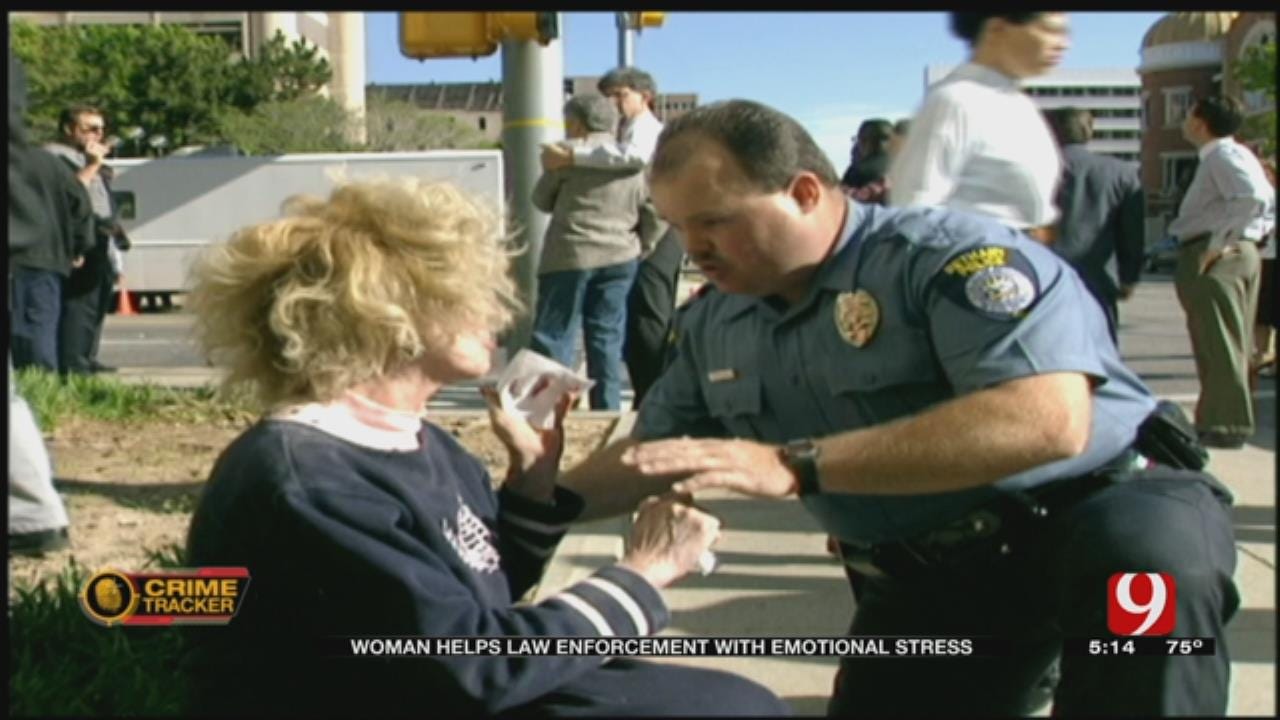Oklahoma Psychologist Helps Law Enforcement With Emotional Stress
<p>There's no doubt that this month has been a hard one, emotionally, for local law enforcement. Last week they mourned those who died in the Oklahoma City bombing. And on Monday, many are mourning at the funeral of Logan County Deputy David Wade.</p>Monday, April 24th 2017, 7:13 pm
There's no doubt that this month has been a hard one, emotionally, for local law enforcement. Last week they mourned those who died in the Oklahoma City bombing. And on Monday, many are mourning at the funeral of Logan County Deputy David Wade.
Dr. Kathy Thomas, who has her PhD in Psychology, helps teach officers across the state, and even cadets at the Oklahoma High Patrol (OHP) Academy, how to deal with the emotional side of the job, and keep it from affecting their daily lives.
Thomas says tackling Post Traumatic Stress Disorder (PTSD) on the frontend can keep officers healthier and happier long term.
“No one is immune to PTSD,” said Thomas.
Thomas says she helps officers learn how to survive the job emotionally, not just physically. She says she began doing this crucial work with officers shortly after the Oklahoma City bombing.
“It wasn't until working the bombing that made me realize, ‘Gosh, they're human.’ Why would we expect somebody to handle those situations and not be impacted by them,” said Thomas.
Thomas says some officers even avoid driving by the National Memorial in order to avoid dealing with the emotional trauma of that day
“So, they start avoiding things, they start disconnecting from people,” said Thomas.
She says not everyone who goes through a traumatic event develops PTSD. But those who do need to do something sooner, rather than later.
“The catch is people don't want to acknowledge they are having problems, especially police officers,” said Thomas. “Because their training is to, you know, handle stuff.”
One thing Thomas says has worked wonders is what is called EMDR, which stands for Eye Movement Desensitization and Reprocessing. Thomas says it is one of the best ways to deal with PTSD and trauma that has been stuck deep in the brain.
“Literally, as an EMDR therapist, I have someone follow my fingers with their eyes,” said Thomas.
Thomas says that bilateral stimulation on the brain can help unstick those traumatic memories and help the brain process them and release them. And it works almost immediately.
“For a single incident, trauma or critical incident, 1 to 3 sessions of EMDR is typically all that's necessary,” said Thomas.
Thomas says she encourages officers to just take the first step and just talk about their experience, whether it’s with a friend, a spouse, or trained professional.
“The more that we can put words on an experience, the more we can talk about an experience, the more our brain can process it,” said Thomas.
And Thomas says PTSD does not have to be a life sentence, or carry a stigma, because it can be treated. And she asserts that treatment is always confidential.
More Like This
April 24th, 2017
March 22nd, 2024
March 14th, 2024
February 9th, 2024












